WRITING DOESN'T HAVE TO BE A BLOOD SPORT
When I was 23, I began a PhD program in Sociology at New York University. I had loved every second of my undergraduate experience and thrived in my social science classes. The logical step seemed to be to just stay in school forever.
It started the first semester. Assignments for seminar papers due the end of the semester rolled in and I began to panic. While I attended every class, threw myself into the culture of the department and tried my best to keep up with reading three to four academic books a week, I froze when trying to write a graduate school paper.
Today, I write for a living. I draft scripts for a range of film and interactive projects, as well as business and fundraising proposals, website copy, and now for this blog. I now find joy in the writing process and I love it when a good editor digs deep into a piece and makes it tighter. I never fear feedback. I appreciate it.
The revised script outline for documentary, The Last Song Before the War, which I directed, co-wrote and produced with Leola Calzolai-Stewart and Andrea Papitto.
I reflect from time on time on who am I am now as a writer and who I was 15 years ago in graduate school. While I managed to eventually get those papers out, I typically didn’t even read the faculty feedback out of embarrassment. Ultimately, the experience became so unpleasant to me that I left the program four years in and just shy of finishing my dissertation proposal. I had fallen in love with producing for film and knew this was the career for me. The thought of struggling alone over a dissertation for several more years felt like a pathway to anti-depressants.
I see now that the biggest hurdle in my success as a scholarly writer did not have so much to do with intellect or attention span as I started to believe in graduate school, but rather that I didn’t understand what the final product should look like. Nor did I know what the point of the assignment was. Was I expected to come up with some brilliant thesis about everything we learned that semester? Was this just a way for the professor to know I had read the material? To this day, I question if a twenty-page paper is the best way to learn. What if students were required to write reviews of each book they read, or take an exam at the end which required more intellectual synthesizing of ideas than regurgitation in a long paper. What if we learned how to write journal articles and op-eds? In the real world, good writing is praised for its purpose and brevity rather than length.
When I was in undergrad at the University of Denver, I had a fantastic sociology professor who would leave, in the library, three to four of the best examples of class assignments from former students. I would study these and use the structure and writing style to help me formulate my thinking. In graduate school, there were no examples that I knew of. When all your classmates and faculty are the smartest of the smart kids, asking for help feels like a sign of weakness or worse, inability. Clear expectations can remove a lot of unnecessary anxiety.
What I love about writing for film and video is exactly that -- there are templates, structures, goals and distinct audiences in mind. You know that one page equals about a minute on screen. Early in my producing career, I was lucky to have mentors, bosses, and colleagues who coached me in the process of writing for film. Every piece is different, but my process is now the same -- I do my research – sometimes it’s reading books and articles, other times it’s conducting interviews. Listening to music for the piece can jog ideas. I then think and sleep on the topic for a day or two. The best advice I ever got was to visualize the experience first, then write. The visualization is the best part and most effective. The actual writing doesn’t take much time. It’s the pre-writing, imagining, and researching that make the words flow. When it works on paper, it works on screen and that is deeply satisfying.
One of the things I am most proud of here at FLOWSTATE Films is the time we spent creating a transparent process for working with our clients. Before we ever deliver a script, special attention is spent understanding how they see themselves, what their expectations are for a video, and creating a dynamic where we are working together to create the best product. After all, writing is a collaborative sport.
To learn more about our collaborative process visit the OUR PROCESS page of our website.

